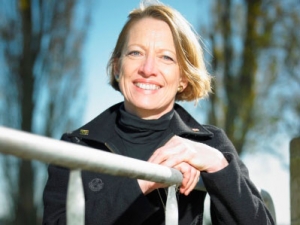Rural bias?
OPINION: After years of ever-worsening results from our education system, the startling results from a maths acceleration programme stood out like a dog’s proverbials – the trial producing gains of one full year in just 12-weeks.
 Waikato University Agribusiness professor Jacqueline Rowarth says every subject at school should be taught through the lens of food production.
Waikato University Agribusiness professor Jacqueline Rowarth says every subject at school should be taught through the lens of food production.
Teaching about agriculture and food should start at school, says Waikato University’s agribusiness head Jacqueline Rowarth.
In New Zealand it should be tied into every subject from economics, to history and geography.
“I am with Julian Cribb (Australian agricultural communicator) who says every subject at school should be taught through a lens of food production,” says Rowarth.
“For instance, economics: what does the country make money from? Or history: why was there an Irish copper on any American corner? Answer, the potato famine. Obviously geography is moving food around.
“Every single subject can be taught through a lens of food and that’s the bit we’ve been missing recently.”
Rowarth says at Waikato University agribusiness is a relatively new subject area. In 2011 there were no agribusiness students, this year there are 42. For the first time the university also offers the subject as an elective in the first year with a further 55 students.
“Overall we have over 100 enrolments which is still small for New Zealand. But do we think it is indicative of increased interests? Hurray, yes!”
At Waikato students can do a major or a double major in agribusiness or do papers as part of other degrees so the agribusiness students come from all faculties. It is one agricultural programme you don’t have to have done chemistry for previously, Rowarth says. Fewer and fewer students are doing sciences at school so they struggle to get into other agricultural courses.
While she thinks it is a pity science is not pushed at schools, at least through agribusiness papers students are getting some agricultural background.
“We now have accountants and some finance people going out into the workforce with some understanding of agribusiness so if they are going to work for KPMG, that is a good idea.”
She says Fonterra employs about 90 accountants, most of whom would have straight accounting degrees, with no understanding of agriculture. “They can do the agribusiness major here and then they understand both.”
Rowarth says students often no longer base their choice of a tertiary education provider on the degrees they offer. Instead they look at lifestyle issues such as whether it is cheaper to live with their parents, take part-time jobs, or considerations about partners, so they look at what their local institutions have to offer. “So increasingly having some sort of agribusiness at all the institutions would be a good idea.”
She would like to see Auckland University also offer some undergraduate agribusiness papers.
New Zealand's new Special Agricultural Trade Envoy, Horowhenua dairy farmer, company director and former Minister of Agriculture, Nathan Guy says the Free Trade Agreement (FTA) with India is a good deal for the country.
New figures show dairy farmers are not only holding on to their international workforce, but are also supporting those staff to step into higher-skilled roles on farm.
New tractor deliveries for 2025 jumped 10% compared to the previous year, a reflection of the positive primary sector outlook, according to the Tractor and Machinery Association (TAMA).
Entries have opened for two awards in the New Zealand Dairy Industry Awards (NZDIA) programme, aimed at helping young farmers progress to farm ownership.
Federated Farmers has confirmed interim chief executive Mike Siermans to the role.
Registrations are now open for the 2026 Ruralco Golf Classic, with all proceeds from the event set to support the Mid Canterbury Rural Support Trust.

OPINION: If the hand-wringing, cravat and bow-tie wearing commentariat of a left-leaning persuasion had any influence on global markets, we'd…
OPINION: With Winston Peters playing politics with the PM's Indian FTA, all eyes will be on Labour who have the…